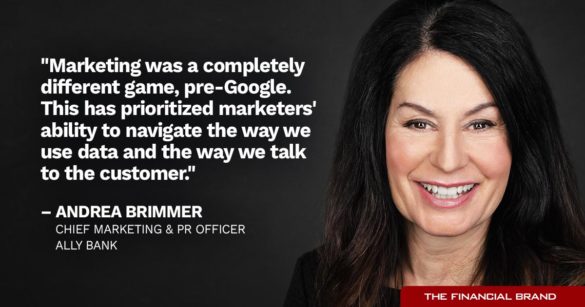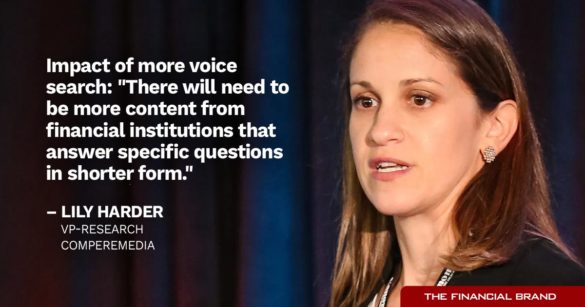In January 2020 in a short blog the head of engineering for Google’s Chrome browser set off a bomb. The company plans to effectively kill third-party cookies on Chrome within two years.
In recognition of privacy concerns, wrote Justin Schuh, Google was taking steps to implement its Privacy Sandbox, announced the previous summer. As part of that implementation, he said, after Google “addressed the needs of users, publishers, and advertisers, and we have developed the tools to mitigate workarounds, we plan to phase out support for third-party cookies in Chrome.”
Schuh’s announcement that Google would “render third-party cookies obsolete” brought howls from the marketing fraternity. Chrome users represent approximately seven out of ten internet visitors worldwide and cookies are a website basic.
But what happened next was even more interesting.
Google has a unique status among companies. Soon after the announcement, the Association of National Advertisers and the American Association of Advertising Agencies issued a joint statement asking Google to rethink its decision.
“It would threaten to substantially disrupt much of the infrastructure of today’s internet without providing any viable alternative,” the groups wrote, in a tone trade associations typically reserve for comment letters to government agencies, not for corporations.
This is testimony to the dominant role Google now plays in marketing.
Google, the search engine, launched in 1998, and in 2000, the company launched Google AdWords, now known as Google Ads. As the company grew and increased its presence in digital advertising and search through acquisitions of companies like DoubleClick and YouTube, it exerted a gravitational pull on marketing that continues to play out two decades after Google Ads began. Today advertising represents the leading revenue source for Alphabet, Google’s parent company. Google continuously adds to its search results design features and constantly amends its search algorithm.
So, what was financial marketing like before Google? It was a lot simpler. Marketing directors contracted for a year of ads with the local newspapers, explored some radio and TV, and picked a few stuffed toys or other premiums to induce consumers to open deposit accounts. It was the day of the Crocker National Bank “Crocker Spaniel” and the Chase “Banker Bear” and, of course, the ubiquitous toaster. Throw in some community relations activities and that pretty much was financial institution marketing.
Today, Google, and the other digital players it helped clear the way for, has changed the face of marketing in both fundamental and subtle ways. Google has had a major role in revamping what marketing is and what marketers do and what they have to understand. Google has been in the vanguard of forces that changed how marketers’ performance and success is measured. How consumers find financial providers has been changing. There are ripple effects as Google search evolves, such as the rise of advice and aggregation sites like NerdWallet, that can attract more attention on Google than financial institutions’ own sites.
Underscoring its importance is the growing evolution of online marketing from a duopoly of Google (strongest in search) and Facebook (strongest in display advertising) to a “triopoly,” in eMarketer’s terminology, to include Amazon. The latter continues to move beyond ecommerce and is something of a wild card. At present its advertising share is quite small, but growing. eMarketer projects that the three companies will account for about 70% of digital ad spending in the U.S. in 2020. (This includes spending on YouTube, which Google purchased in 2006.)

The unfair advantage for financial brands.
Offering aggressive financial marketing strategies custom-built for leaders looking to redefine industry norms and establish market dominance.

Navigating the Role of AI in Financial Institutions
83% of FI leaders agree investing in AI is essential for 2024 but how you leverage AI is instrumental in success and meeting customer expectations.
Read More about Navigating the Role of AI in Financial Institutions
Google Keeps Marketers Hopping All the Time
You can’t always neatly separate the Google effect from overall digitization of marketing, but 20 years after the launch of Google Ads, Google’s strong influence is clear.
“The better question is, how hasn’t Google changed marketing and advertising?” says Joe Sullivan, CEO at Market Insights, a consulting firm. “Hopefully, bank and credit union marketers already understand that what worked in 2010, or even 2015, will not work in 2020. Google has empowered the consumer and turned the ‘customer’s journey’ inside out and upside down.” Google is believed to own 65%-75% of search volume in the U.S. and even more in other countries.
Here’s one example of why Sullivan tempers his observation with “hopefully.” He points out that Google has changed how consumers access and interpret information, even about financial institutions.
“Every Google algorithm update makes marketing and advertising more complex and yet there are banks and credit unions that aren’t even using Google Analytics yet.”
— Joe Sullivan, Market Insights
“Type ‘best bank’ into Google and see what comes up,” suggests Sullivan. “An ad for Marcus by Goldman Sachs and one for Chime comes up first in my area. Scrolling down to the map, one national bank and one regional bank are the first choices. What does that tell you about which marketers are paying attention to Google?”
“Every Google algorithm update makes marketing and advertising more complex,” Sullivan continues, “and yet there are banks and credit unions that aren’t even using Google Analytics yet.” Google has been offering the free website measurement tool set since 2005.
Sullivan says many community bank and credit union marketers still can’t break the traditional media habit.
“I often remind marketers that the next time a loan officer sticks his head in their office saying, ‘Hey, I just noticed there’s an empty billboard outside of town,’ the response should be, ‘I know, but 90% of our customer’s media consumption is happening on digital devices — guess where we’re spending our money?'”
“Both Google and Amazon have changed the way we think about marketing,” says Andrea Brimmer, Chief Marketing and PR Officer at Ally Financial. Google, she says, has become almost predictive in its guidance to consumers searching for goods and services, based on their historical patterns. But the Google platform, taken as a whole, has also made marketing online a much more dynamic affair. Pay-per-click search terms make a strong example. Companies are constantly bidding to keep or gain various terms. This applies widely.
“We now have to be exceptionally nimble,” says Brimmer, “in terms of our creative approach. There is no more ‘set it and forget it.’ You are constantly making adjustments.”
“The challenge for marketers will be keeping up with Google’s continual updates and optimizing their efforts based on what the company’s algorithms do,” says Lily Harder, Vice President-Research at Comperemedia, a Mintel company.
Marketers, publishers, retailers and more can like or dislike how Google has influenced marketing and advertising, but the one thing they can’t do is ignore it without damaging their brands’ prospects.
“Google was a pioneer, the pioneer,” says Michael Bertini, Online Marketing Consultant and Search Strategist at iQuanti. “It brought a lot of change to the forefront.”
But just as Google brought huge changes in its short life span, that dominance may not be forever, suggests Bertini. But we’re getting ahead of our story.
Read More: 5 Risks Banks and Credit Unions Face By Partnering With Google
Data, Data Everywhere Replaces Feel and Theory
It’s wrong to say that Google initiated an age of data playing a role in marketing, because research firms have been measuring audiences among readers, listeners and viewers for decades. But there were lots of holes in those methods, and the longstanding marketing adage, “I know I’m wasting half my money, but I don’t know which half,” held true.
As it evolved, Google held out the promise to answer that classic question. Ken Auletta, media columnist in The New Yorker, and author of Googled: The End of the World as We Know It (2009) and Frenemies: The Epic Disruption of the Ad Business (and Everything Else) (2018),wrote that the sheer explosion of data that could be obtained through Google Analytics and other mechanisms took some of the “magic” out of marketing, but put in more math.
Indeed, the “Math Men,” as Auletta dubbed them, joined or even supplanted the “Mad Men” of classic advertising. The numbers generated by Google Analytics and additional tracking measures began to put some quantitative data in the blank left by the “which half” question.
“Marketing was a completely different game, pre-Google,” says Ally’s Andrea Brimmer. “This has prioritized marketers’ ability to navigate the way we use data and the way we talk to the consumer. We have more ability to understand audience behavior and have a better sense of who is trying to consume our brand.”
Marketers used to be able to craft central messages and push them out via multiple channels. Nowadays, says Brimmer, marketers tend to tailor their messages and approaches to each channel. Ally, for example, typically maintains a separate strategy, even different campaigns, for each major social media channel.
In terms of marketing cost efficiency, the “walled gardens” of Google, Facebook and Amazon all provide ways to filter out unwanted audiences, Brimmer adds.
Read More: Fintech Firms Now Using Enhanced Data To Threaten Legacy Banks
The Flawed Religion of Measurement
All that said, there is a downside. “Some brands have become overly reliant on data,” says Brimmer. “It has curbed their creativity.”
The availability of so much data, in neverending permutations and combinations, has also given rise to some skepticism.
“”With traditional marketing, you didn’t know what was working. Now you know exactly what will work and spend more money on what works…. Except this is a complete myth.”
— Nicole Perrin, eMarketer
“It’s a ruler, but not a perfect ruler,” says Nicole Perrin, Principal Analyst at eMarketer.
“With traditional marketing, you didn’t know what was working,” says Perrin. “Now you know exactly what will work and spend more money on what works…. Except this is a complete myth.”
The attraction of being able to determine return on investment in digital marketing is quite strong, says Perrin, and this has actually caused some pullback in branding advertising. The thinking is that it can be difficult to measure the payoff from branding, while pay-per-click advertising has elements of “click and buy now” that appears to create a much more concrete cause-and-effect relationship. When this technique and digital advertising platforms were new, the data available excited marketers and created a baseline that hadn’t existed before.
But then the thirst for data led to optimizing web content for results, which tended to produce marketing that drove good numbers, according to Perrin. She cites what is called the McNamara Fallacy, a reference going back to the Vietnam War and the federal government’s use of data to address the war’s status. Simply put, she says, the concept is that “not everything that can be measured matters, and not everything that matters can be measured.” (The latter is a variation on something once said by Albert Einstein.)
One of the problems with the religion of measurement driven by Google and others is that there is a difference between advertising that is efficient — a good buy for the audience reached — versus advertising that is effective — ads that actually sell, according to Andrew Lipsman, Principal Analyst at eMarketer.
Perrin notes that this doesn’t even touch on numbers that may not mean what marketers hope they mean. Not all traffic is human traffic, and programmatic advertising is known to be susceptible to fraud, for example.
Both Perrin and Lipsman like to point to a story about a handful of teenagers using leaflets to advertise a special deal at a pizzeria. One kid had a phenomenally superior ratio of sales to leaflets distributed. It turns out that the teen was giving out his flyers at the pizzeria — where everyone had already self-selected for pizza. The analysts warn that digital marketing data can hide such surprises.
Read More:
- Data Analytics Pitfalls Banks and Credit Unions Must Avoid
- How Data Privacy Can Give Financial Institutions a Marketing Edge
- How Personalization Strategies Can Backfire on Financial Marketers
Did Google Kill Creativity?
In Frenemies Auletta observes, “What humans have that machines lack is empathy. If consumers are swayed by emotion, then the copywriter has some advantages over the algorithm.”
However, “since Google has come in, creative has become a lot less important in the advertiser’s mind,” says Collin Colburn, Analyst at Forrester. Creativity plays no part in SEO and SEM, for example, he says. It’s an educated matching game in the latter case and a bidding game in the second.
“Creative has taken a back seat,” says Colburn.
Discussing the role and future of creativity in marketing depends in some ways on how you define it.
Comperemedia’s Lily Harder, who specializes in financial institution marketing, sees several trends coming together. One is the need to have content that stands out. “We have so much information at our fingertips,” she says, “and we have more information than we have time to digest.”
As voice search becomes more and more common — Harder says it’s estimated that 50% of search may be voice-based in 2020 — banking sites will need to recast content in a way that enables Google to find answers to questions that it can pluck out and present to the inquiring consumer. “There will need to be more content from financial institutions that answer specific questions in shorter form,” Harder says. Overall, she says, Google has stepped up the need for content marketing to have relevance an algorithm can easily spot.
Bertini has spent virtually his entire career helping financial companies and others improve their search visibility, but get him on the subject of Google’s impact on creativity and his initial response is blunt.
“Google has butchered creativity,” says Bertini. As a gauge, he points to online writers who initially wrote to write, who then get SEO religion. Their content becomes infested with keywords and more, he says, lessening their quality. Yes, Google officials will say their algorithms will seek out quality and rank it highly, he says.
“Well,” he says. “That’s bull.”
Bertini describes a challenge for brands that could be summarized as “Whose content is it, anyway?”
Specifically he points to the Google “answer box,” which comes up in most Google search engine results pages. These are short answers to questions input or implied in the user’s search that are excerpted from other companies’ sites. In financial services, this could take the form of a ranking of best credit cards or an explanation of what closing costs mean. There is a prestige to being cited as an authority in this way — the original site is identified by Google — according to Bertini. However, the downside is that “very few people click through from there onto our clients’ own websites.” Many have found what they needed.
Nicole Perrin of eMarketer acknowledges that vendors actively promote artificial intelligence services that will help select the best approaches to various consumer types, but she is skeptical.
“I think marketing is still a mix of art and science,” says Perrin. “It’s not just science.”
Joe Sullivan says Google has helped creativity in some ways through the free tools it makes available through the aptly named “Create with Google” platform. “They give you tools to use their products,” he says, such as a “machine” for creating six-second ads from existing videos.
“On the other hand,” adds Sullivan, “this has constricted creativity somewhat by dictating how marketing/advertising must be done in order to be effective.”
Read More:
- Can Robots Write Better Financial Ad Copy Than You?
- 9 Ways Financial Marketers Can Get Content Marketing Right
- Why Fintech Challengers May Not Conquer Banking After All

How Will Stiffening Privacy Rules Affect Google Age?
Will the California Consumer Privacy Act and legislation inspired by it, coupled with Washington’s growing official annoyance over big tech firms like Google, hurt this digital marketing juggernaut? Feelings are somewhat mixed among the experts interviewed.
There’s support for an argument that eMarketer makes that clamping down on privacy may actually benefit Google, Facebook and Amazon, as well as other social platforms. At first this seems counterintuitive, as the likes of those companies are among lawmakers’ targets. However, eMarketer argues that the companies’ entrenched position will help them in the new atmosphere.
“Their rich data sets, strong cross-device identity graphs, audience reach and closed-loop measurement will be too much for digital media ad buyers to pass up in an age of uncertainty,” eMarketer states in a report.
“Consumers know who Google is and they have a relationship,” says eMarketer’s Nicole Perrin.
“We’re going to see substantive changes with new privacy laws,” says Ally’s Brimmer, “but I agree that this will work to make the data these companies have even more valuable than today.”
Mike Bertini is a contrarian on privacy. He thinks the legislation will be a bit of a wakeup call on privacy for some consumers, such as Millennials. As they begin to worry about how much Google knows about them, he continues, they will seek alternatives to the search engine that birthed “I’ll Google that.”
Bertini’s money is on DuckDuckGo, a search engine that could be called the Anti-Google. Its own Google Ads entry is headlined: “DuckDuckGo Privacy Essentials | Join the Privacy Movement.” The search engine promises search privacy and anonymity, blocking of all trackers, and results that are not filtered by past usage to personalize them, but instead are identical for every user.
Bertini thinks people may be stimulated by the legislation and other factors to explore new choices like DuckDuckGo. This would effectively eliminate the advantages brands have come to regard as normal via Google.
“It would suck for marketers,” says Bertini. “But I believe five years from now people will be looked at as old if they say, ‘I’ll Google it’.”










